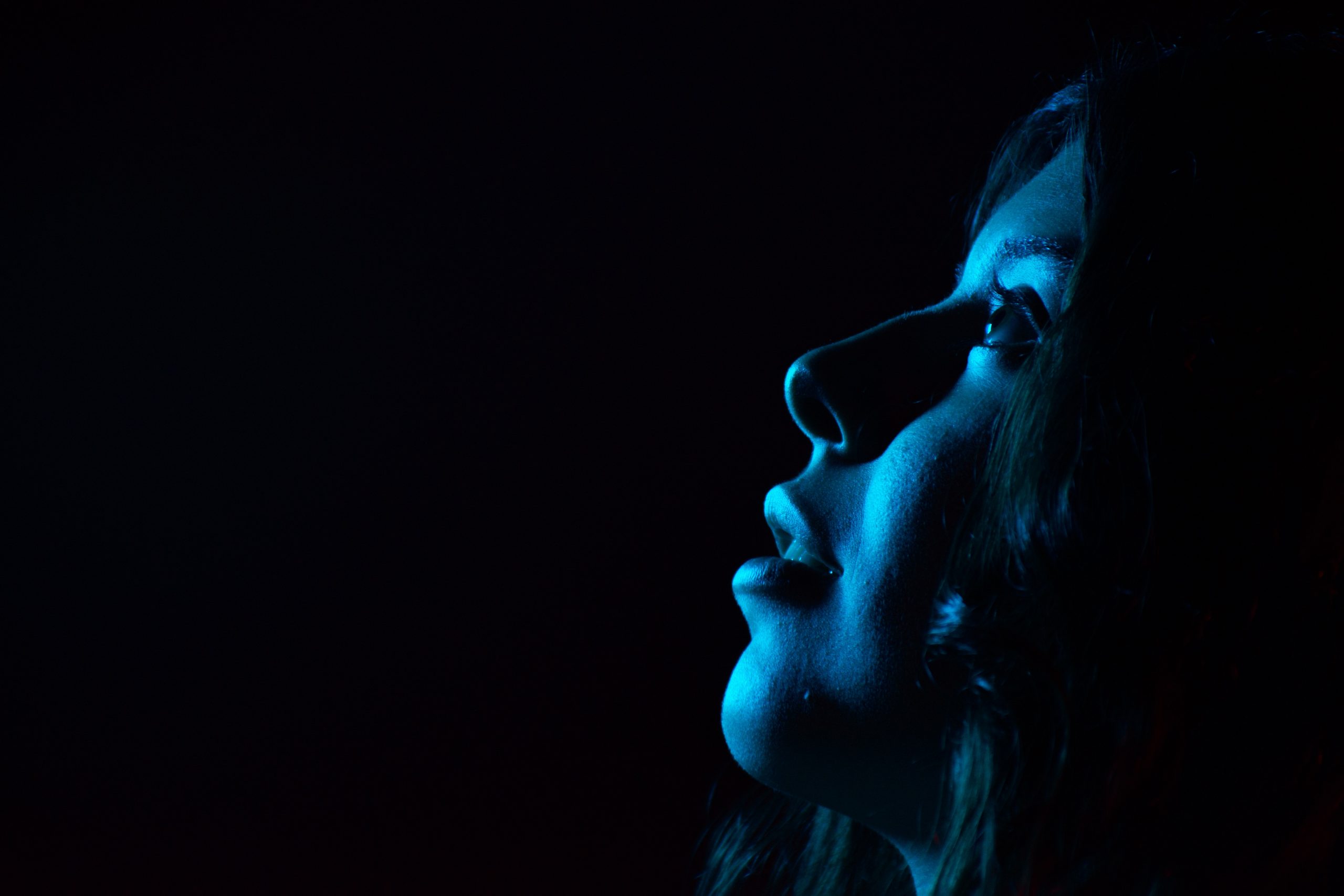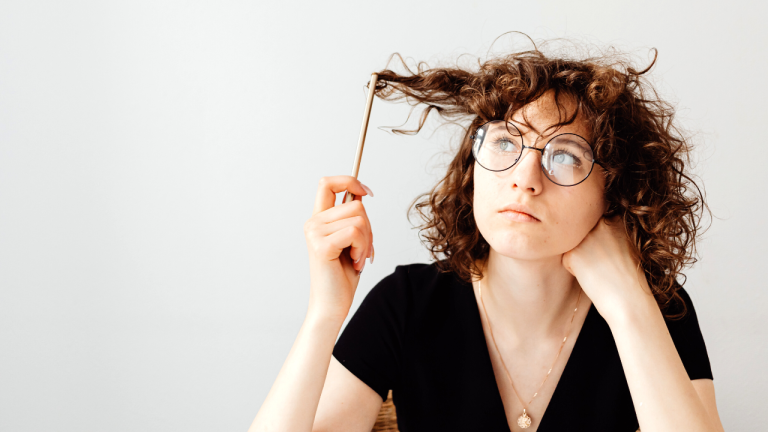Is blue light good or bad for you? Actually, it is both, but most importantly, it plays a crucial role in your circadian rhythm! In this post, we will explain blue light’s positive and negative effects on your health and performance!
Listen to the Blog
What is Blue Light?
Blue light has been a hot topic for a while, but what is blue light? Blue light is a combination of visible and non-visible light with a wavelength of 380-500 nanometers. You can find blue light everywhere, as it is in the atmosphere, transmitted from the sun, but it is also emitted from LED lights and device displays. Let’s now see how blue light affects you differently during daytime and nighttime.
Blue Light During Daytime
You might think coffee is the most important part of your morning routine, but truth be told, light is even more important. Getting enough bright light in your daytime, especially as soon as you wake up, is absolutely crucial for your well-being and performance. Why? Because its brightness and the blue wavelength contained in it signal to your brain that it’s daytime.
This ensures your circadian clock is in sync and consequently improves alertness, mood, productivity, and cognitive functions. So blue light during the day is actually good for us, and we must ensure we get enough of it. On average, we spend more than 90% of our days indoors, and now that many of us work from home, we might not get enough daylight.
That’s because artificial light is much dimmer than outdoor light. To give you an idea, bright sunlight is over 100,000 lux, a cloudy day around 15,000 lux, while indoor lighting is less than 1,000 lux. If you’re curious to know how many lux you have in your room, you can download a free app called – guess what – Lux, available both for iOS and Android.
A few minutes of bright light may be enough to synchronize our internal clocks, but we need one hour of bright light to suppress melatonin (and therefore sleep) and even more than an hour of light to prevent depression. So how can you ensure you get the right amount of light?
The best solution is to take a morning walk, so you’ll get the most powerful light source you have at your disposal, the sun (without looking directly at it), while also activating your body. Then, when you have breakfast or break your fast, pun intended, sit close to a large window to get more light. Then, have a bright LED light turned on in your office or home office, and look outside a window whenever you take a break.
You’ll be surprised by how alert you’ll feel if you do this consistently. And if you spend most of the morning in a closed space, I highly recommend you get what is called a light therapy lamp. It’s a very powerful lamp – usually around 10,000 or 15,000 lux – which also contains blue light, and you simply have to keep it in close proximity in the morning, so that it mimics the effects of daylight.
You can get one for less than 100 bucks. You’ve now read why you should get all the light you can during the daytime, but when it comes to the evening, things are quite different.
Blue Light in the Evening
Blue light helps you stay synced to your circadian clock during the first part of the day. But naturally, when the evening comes, it gets dark, and we should not be exposed to blue light anymore, to let “darkness” signal to our brains that it is time to prepare for sleep.
But as technology has evolved and natural light isn’t the only source of blue light, many people are exposed to it even while in bed due to the blue light emitted from cell phones, TVs, and other digital devices. You may already see the issue here.
The fact that we use digital devices late in the evening not only keeps us focused on social events and distracts our mental unwinding, but the artificial blue light released from them disturbs our circadian rhythm. This means that our brain cannot recognize when to stay awake and when to sleep. Okay, so you may think how does light have such power?
Because we have a unique direct pathway for light to travel through our eyes into our brain, affecting our physical and mental processes. So blue light directly affects your brain and what research has shown is that blue light suppresses melatonin production and delta brain waves that both promote “sleepiness.”
This results in issues with falling asleep and REM sleep being delayed and occurring much later in the sleep cycle. This means that the overall sleep quality and quantity decrease. What you can do, is dim your lights down towards the evening, best if in warm tones such as orange or red, and avoid the usage of digital devices close to bed.
If you still need to use them for work or studies, you can use blue light blocking glasses or a screen feature that makes your screen orange or even red.
Summary
We hope this post helped you learn how to use blue light to your advantage! If you want to dive deeper into how to optimize your circadian rhythm, I highly recommend you read The Circadian Code, by Satchin Panda, PhD.
Here’s a final wrap-up to consolidate all that you’ve learned: expose yourself to as much daylight as possible during the day, and if you can’t get enough of it, consider a light therapy lamp. While in the evening, dim all of your lights and make sure you sleep in complete darkness. And to maximize your melatonin release, and avoid its suppression, use dimmed red lights in the house and wear blue light blocking glasses a couple of hours before bedtime.
If you’re curious to learn more about us and are ready to go Beyond Sapiens, you can read more about our Business & Individual Maximization Coaching programs!
Links
1️⃣ Red Light
→ RGB Bedside Lamp: https://amzn.to/3h0u0NQ
→ Colored Light Bulbs: https://amzn.to/3FoUZv
2️⃣ Apps to Measure Lux
→ Twilight (Android): https://play.google.com/store/apps/details?id=com.urbandroid.lux&hl=en&gl=US
→ f.lux (Windows): https://justgetflux.com/
→ f.lux (Apple): https://justgetflux.com/news/pages/macquickstart/#download:
3️⃣ Products to Optimize Your Circadian Rhythm
→ Blue Light-Blocking Glasses (use code BEYONDSAPIENS15 for 15% off): https://filteroptix.com/collections/blue-light-glasses-red
→ Light Therapy Lamp: https://amzn.to/3PgtcRA | https://amzn.to/3HB7mq6
4️⃣ Recommended Book
→ The Circadian Code, by Satchin Panda, PhD: https://amzn.to/3uEt0ST
Research
Wong, N.A., Bahmani, H., 2022. A review of the current state of research on artificial blue light safety as it applies to digital devices. Heliyon 8, e10282. https://doi.org/10.1016/j.heliyon.2022.e10282
Theruveethi, N., Bui, B.V., Joshi, M.B., Valiathan, M., Ganeshrao, S.B., Gopalakrishnan, S., Kabekkodu, S.P., Bhat, S.S., Surendran, S., 2022. Blue Light-Induced Retinal Neuronal Injury and Amelioration by Commercially Available Blue Light-Blocking Lenses. Life 12, 243. https://doi.org/10.3390/life12020243
Nickla, D.L., Rucker, F., Taylor, C.P., Sarfare, S., Chen, W., Elin-Calcador, J., Wang, X., 2022. Effects of morning and evening exposures to blue light of varying illuminance on ocular growth rates and ocular rhythms in chicks. Experimental Eye Research 217, 108963. https://doi.org/10.1016/j.exer.2022.108963
Munsamy, A.J., Moodley, M., Khan, Z., Govender, K., Nkwanyana, M., Cele, S., Radebe, M., 2022. Evidence on the effects of digital blue light on the eye: A scoping review. African Vision and Eye Health 81, 9. https://doi.org/10.4102/aveh.v81i1.685
Münch, M., Bromundt, V., 2012. Light and chronobiology: implications for health and disease. Dialogues in Clinical Neuroscience 14, 448–453. https://doi.org/10.31887/DCNS.2012.14.4/mmuench
Light therapeutics: How light (or darkness) affects our circadian clock, sleep, and mood – myCircadianClock Blog, n.d. URL https://blog.mycircadianclock.org/light-therapeutics-how-light-or-darkness-affects-our-circadian-clock-sleep-and-mood/ (accessed 12.7.22).
Nagai, N., Ayaki, M., Yanagawa, T., Hattori, A., Negishi, K., Mori, T., Nakamura, T.J., Tsubota, K., 2019. Suppression of Blue Light at Night Ameliorates Metabolic Abnormalities by Controlling Circadian Rhythms. Investigative Ophthalmology & Visual Science 60, 3786–3793. https://doi.org/10.1167/iovs.19-27195
Tähkämö, L., Partonen, T., Pesonen, A.-K., 2019. Systematic review of light exposure impact on human circadian rhythm. Chronobiology International 36, 151–170. https://doi.org/10.1080/07420528.2018.1527773
Silvani, M.I., Werder, R., Perret, C., 2022. The influence of blue light on sleep, performance and wellbeing in young adults: A systematic review. Frontiers in Physiology 13.
Silvani, M.I., Werder, R., Perret, C., 2022. The influence of blue light on sleep, performance and wellbeing in young adults: A systematic review. Frontiers in Physiology 13.
Holzman, D.C., 2010. What’s in a Color? The Unique Human Health Effects of Blue Light. Environmental Health Perspectives 118, A22–A27. https://doi.org/10.1289/ehp.118-a22






